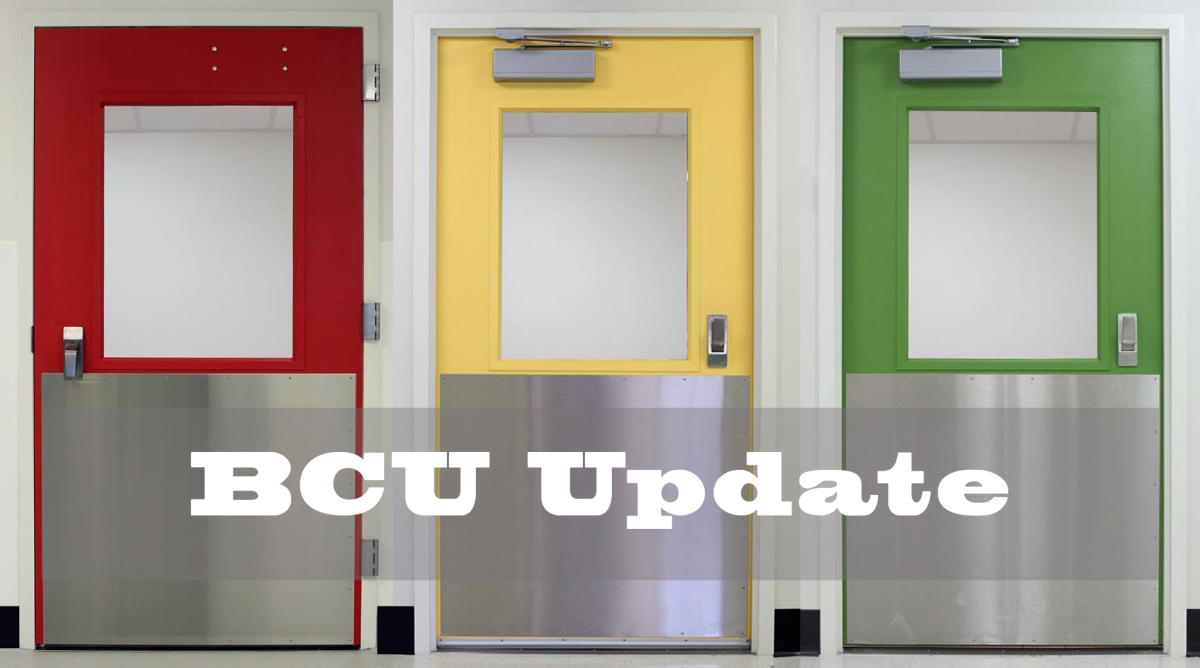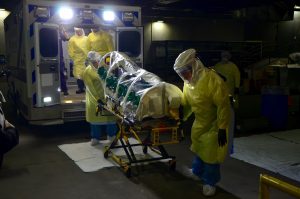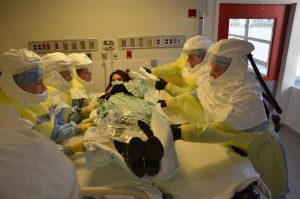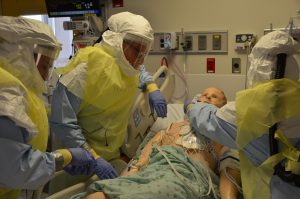On December 15, staff members and providers from 11 departments at The Johns Hopkins Hospital and Johns Hopkins Bayview Medical Center participated in our final quarterly preparedness drill of 2016. Visitors from the National Ebola Treatment and Education Center (NETEC), the Office of the Assistant Secretary of Preparedness and Response (ASPR), the Maryland State Department of Health and Mental Hygiene (DHMH) and the United States Army Medical Research Institute of Infectious Diseases (USAMRIID) were on hand to observe as we transported a mock Ebola patient from Bayview to the BCU. After arrival on the unit, providers participated in a high-fidelity simulation that required the execution of essential care protocols including airway management, advanced cardiac life support and laboratory specimen processing. We learned a great deal about our processes and protocols, and look forward to incorporating our lessons learned in the new year. The drill was capped off by our annual BCU holiday party in Fells Point.
Also in December, the BCU published a manuscript in the Journal of Clinical Microbiology on the use of autoclaves to sterilize highly infectious medical waste from biocontainment units. We showed that factory default settings are insufficient to sterilize BCU waste, and that waste packaging is critical to successful decontamination. This manuscript will serve as a guide to other hospitals looking to establish their own waste management protocols for serious communicable diseases.
The BCU partnered with the Johns Hopkins Applied Physics Lab to test the safety of our environmental control systems and doffing protocols. APL has created a machine that disperses fluorescent microbeads to mimic a human cough. Sensors can detect where the particles go under static conditions or when a provider is moving through the unit. Preliminary results were presented at the Bayview Research Symposium on December 16, and show that our current protocols contain the microparticles to the patient room and the dirty side of the doffing room.
The BCU also co-presented a poster with DHMH at the National Healthcare Coalition Preparedness Conference in Washington, D.C. on December 13. The poster outlined the lessons learned from the federal Region 3 Ebola preparedness steering group and how those lessons can be applied to future outbreaks and crises.
We are blessed to work with phenomenal colleagues and friends on our preparedness mission. We look forward to sharing our continued activities with you in 2017!



